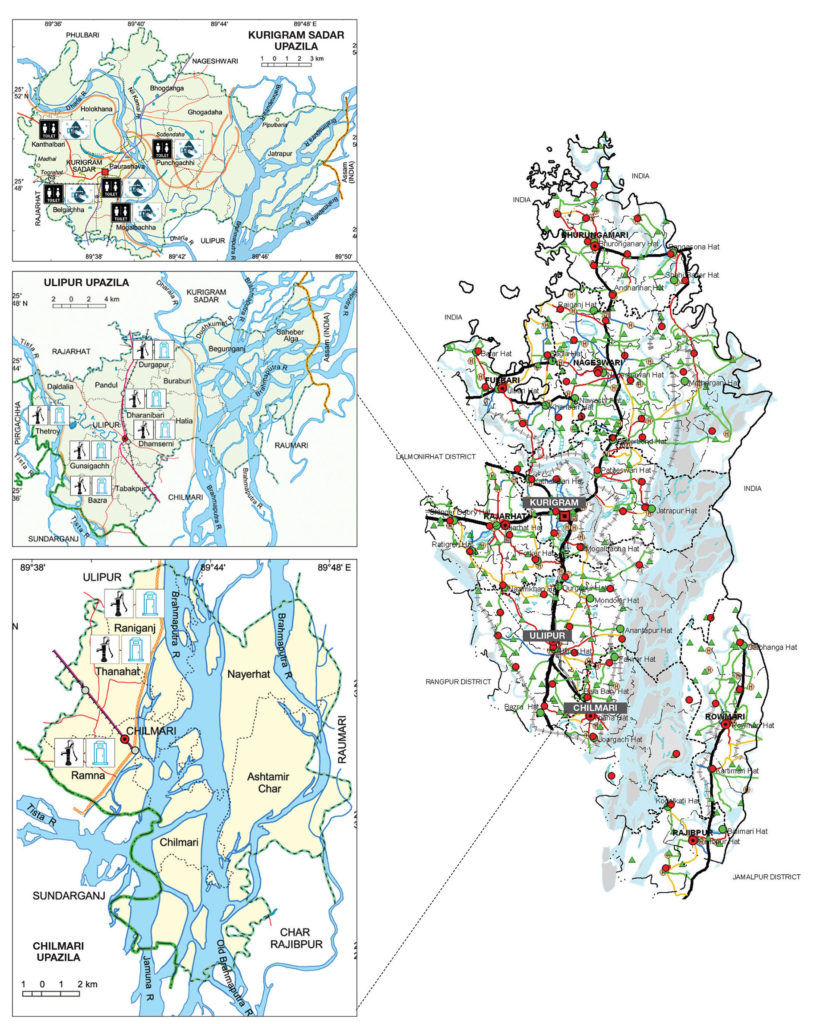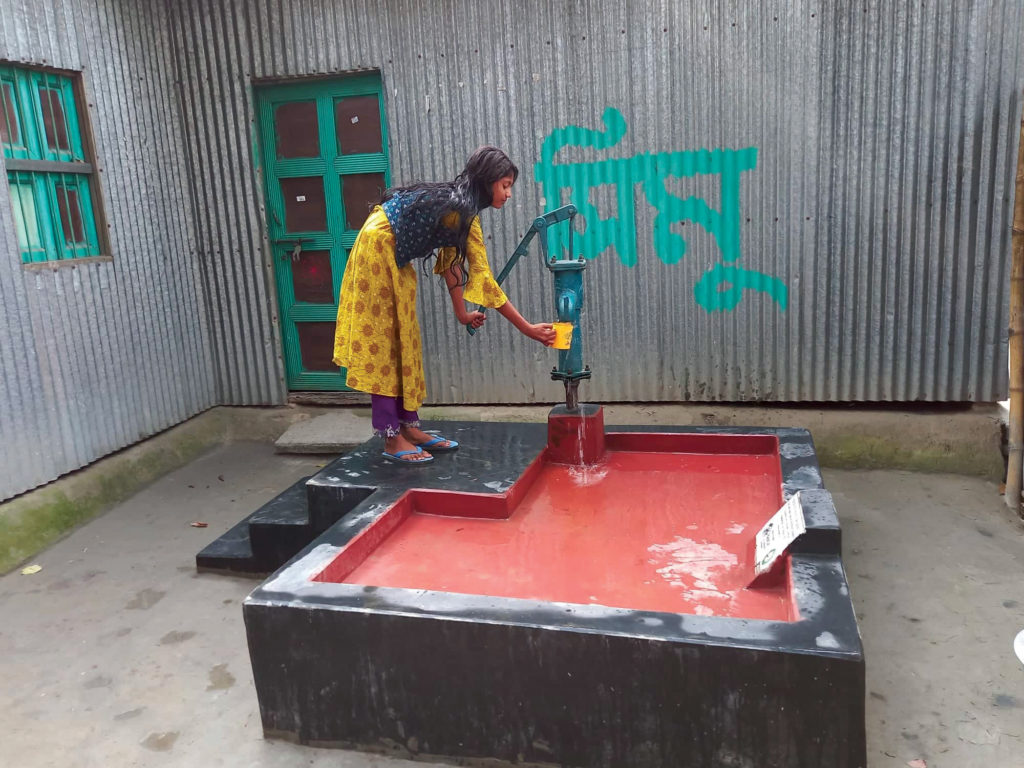Towards a Healthier, More Resilient Future in Flood-Prone Kurigram: Interventions for Clean Water and Sanitation
December 7, 2023

Known as the face of poverty in Bangladesh, Kurigram district in the north is home to 2.4 million people. Over 70 per cent of the population is poor,1 almost three times the national poverty rate of 24.3 per cent. One in two persons in Kurigram is extremely poor.
Caught in an intractable cycle of poverty and inequities, the people in Kurigram are most affected by water, sanitation and hygiene insecurity. Based on government data as of 2011, one in three persons in Kurigram uses a non-sanitary toilet and 11 per cent do not have access to a toilet of any kind.
Low-income families also lack access to affordable financing and skilled workers to build or improve sanitation facilities. While tube wells are used by almost everyone in Kurigram, only six in 10 families have their own tube wells.
In July 2023, a rise in the water level of major rivers—there are 16 rivers that flow through Kurigram—caused roads to be submerged. According to local media reports,2 flood waters entered houses and people faced sanitation problems and a lack of safe drinking water.
ACCESS TO CLEAN WATER AND SANITATION
In Kurigram’s Chilmari, Ulipur and Kurigram Sadar subdistricts, a multiyear initiative was rolled out to address the abovementioned problems. Completed in June 2023, people could continue to use the renovated tube wells and newly constructed toilets despite the floods. Sound project design principles played a key role, as well as consultation with local communities and authorities. For example, the project team, having learnt that floodwater rose to between 2.5 feet and 3 feet, had the renovated tube wells and newly constructed toilets in flood-prone Kurigram on 3-feet-high plinths.
The project had a challenging start. A few months after the project was launched in December 2019, Bangladesh reported its first COVID-19 infections. Lockdowns and government-imposed movement restrictions affected the project’s progress. The project team was able to resume field activities in August 2021 with COVID-19 measures in place. Then construction activities had to be put on hold for about a month when rising levels in rivers and heavy rains caused some parts of the land to be submerged.


In the last one and a half years of the project, the team succeeded in meeting the targets, including the construction of more than 1,100 household toilets. More than 1,000 household brick tube wells were also renovated or retrofitted. Before work began, staff from the government’s Department of Public Health Engineering tested the quality of the water in existing tube wells for traces of arsenic, iron, which may contain bacteria and the fecal coliform bacteria.
Other improvements that the public can freely access included:
• Five toilets with water tanks that provide running water for hand washing and ablutions. These are available to more than 700 community people.
• Two public toilets with water tanks that are located in bustling places such as the local market. Each toilet has six cubicles. The public toilets can serve up to 100,000 people.
• Seven bathing facilities with lockable doors that ensure the privacy, safety and security of more than 900 people, particularly women and girls. People from the communities can also collect water from water points at these facilities.
• Eight water facilities with deep tube wells, water tanks and pipelines that enable families to have piped water at home. By freeing hours of their time previously spent fetching water from distant sources, girls are better able to attend school and women to focus on economic activities.
• An improved 2,100-feet footpath built over proper drainage enables people to walk with ease and helps to divert rainwater to prevent flooding.
By the project’s completion in June 2023, more than 121,000 individuals were able to access clean water and safe sanitation.
[This is an excerpt. Subscribe to the digital edition or hardcopy to read the complete article.]
PROJECT DATA
Project Name
Access to Clean Water and Sanitation in Bangladesh: JTI CIEM WASH initiative
Location
Kurigram District, Bangladesh (Sub-districts: Kurigram Sadar; Ulipur; Chilmari)
Completion Date
30 June 2023
Client/Owner
Community people
Civil & Structural Engineer
Habitat for Humanity Bangladesh’s construction coordinators
Images/Photos
Habitat for Humanity Bangladesh
Additional information by Fahmida Sukria, Program Manager, Habitat for Humanity Bangladesh
Read more stories from FuturArc 4Q 2023: Water!

1 https://www.thedailystar.net/opinion/editorial/news/kurigram-chars-need-high-schools-3162126
2 https://www.tbsnews.net/bangladesh/flooding-worsens-kurigram-665494
3 https://www.thedailystar.net/views/opinion/news/menstrual-hygiene-day-2022-time-put-policy-action-3033371
To read the complete article, get your hardcopy at our online shop/newsstands/major bookstores; subscribe to FuturArc or download the FuturArc App to read the issues.

